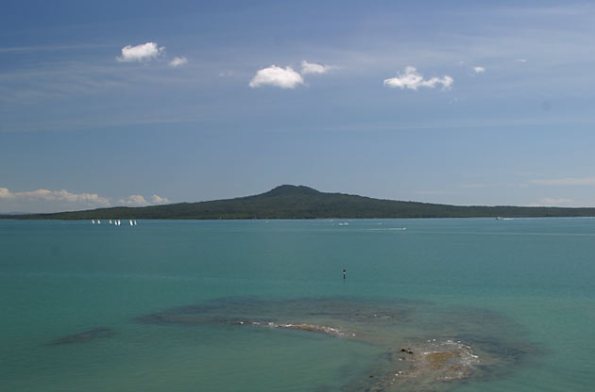Archive
New Zealand Residence Programme: Investor (Investor 2 Category) selection
New Zealand Residence Programme: Investor (Investor 2 Category) selection
Wednesday, February 17, 2010
Source : Immigration New Zealand
A selection of Expressions of Interest (EOI) under the Migrant Investment Policy, Investor (Investor 2 Category), took place on Wednesday, 17 February 2010. Eleven EOIs were selected. All EOIs with a claim of between 20 and 171 points were selected.
For more information relating to your immigration needs contact Ian Mellett.
Residency ‘carrot’ lures rich investors
By Lincoln Tan : Source – New Zealand Herald
Thousands of wealthy foreigners are lining up to move here, just weeks out from the introduction of business migration laws that will grant them residency almost immediately.
Under a new Entrepreneur Plus immigration category – effective on November 30 – entrepreneurial migrants who create at least three fulltime jobs and invest $500,000 in their business will be offered a fast track to residency.
Currently, entrepreneur migrants are issued with a long-term business permit and can apply for residency only after two years.
Although there is no minimum investment capital required, neither is there a guarantee their residency application will be approved.
The new scheme will grant conditional residence virtually as soon as an application is made.
“There is no time requirement that you must have operated your business for to be successful under this category,” the Immigration New Zealand website says.
“The Entrepreneur Plus category provides a faster track to residence for migrants who can demonstrate they have been actively participating in business and contributing to New Zealand’s economic development.”
About 12,000 people have registered their interest in the scheme through the service’s website, with 189 looking to invest $1.5 million or more – a total potential investment of at least $283 million.
The service said it has also received formal expressions of interest from 63 potential investors, and 47 had been invited to apply.
The most interest had come from would-be business migrants in the United States, Britain, India, the Philippines and Ireland.
Property development, education, training and tourism were among the most popular areas for potential investment, an Immigration NZ spokesman said.
The Association for Migration and Investment said the Entrepreneur Plus category would provide an incentive to invest more money – and create more employment – as it removed migrants’ concerns about the need for future residency applications.
“Previously, the only option available for business applicants was the long-term business visa, which is not a residence visa, and many applicants under this policy sought to minimise their business investment,” it said.
But chairwoman Coral Wong believed only a small percentage of the 12,000 would apply. “It’s easy to get excited at the numbers, but $500,000 is still a lot of money for migrants to be investing in NZ and there won’t be masses who have that amount to spare.”
Marco Chan of Hong Kong, who plans to open a restaurant in Auckland, said the offer of “immediate residency” was key to his decision to apply under the new category.
CHANGE OF FORTUNES
PREVIOUS POLICY
Investment capital: None.
Job-creation requirement: None.
Length of time to residency: Available after two years.
NEW POLICY
Investment capital: $500,000.
Job-creation requirement: Minimum three fulltimers.
Length of time to residency: Conditional as soon as requirements met.
EARLY INTEREST
* 12,000 looking to invest at least $500,000.
* 189 want to invest $1.5 million or more.
Net migration at five-year high
The latest annual net migration figure of more than 17,000 is the highest in five years.
The figure is still well down from 2003’s high of more than 40,000, but it is much higher than last year’s paltry 4400.
Source : http://www.3news.co.nz
NZ cities more affordable
A fall in the value of the New Zealand dollar has made Auckland and Wellington much cheaper places to live for expatriates working for multinational organisations. Mercer’s worldwide cost of living survey, carried out in March and published today, showed the two New Zealand cities had close to the lowest cost of living out of 143 cities covered. Auckland was in 138th place, from 78th a year earlier, with a cost of living index of 54 compared to 81 in March 2008. The index is based on a figure of 100 for New York. Wellington is one place lower at 139, from 93 a year earlier, and with an index figure of 52.3, down from 77.6 in 2008. Rob Knox of Mercer said the New Zealand cities were “extremely” cost competitive across the Asia Pacific region for global workers, in comparison with places such as Beijing, Hong Kong, Tokyo and Osaka, which all climbed the rankings this year. “This helps make New Zealand a very attractive hub for companies looking to grow their presence in the Asia Pacific region,” he said. The cost of living of New Zealand cities benefited from a fall in the value of the NZ dollar, which at the end of March had depreciated by more than 33 percent against the US dollar from a year earlier. Also in this country’s favour, Mercer’s quality of living survey published in April ranked Auckland 4th in the world and Wellington 12th. Mr Knox said organisations needed to take the quality of living standards into consideration to establish the true “value of living” of a particular location. In Australia, Sydney remains the most expensive city for expatriates, but dropped from 15th to 66th place with a score of 75.5 points. Melbourne was down to 92nd with 69.9 points from 36th, Brisbane fell to 116th with 65.3 points from 57th, Perth fell to 117th with 65.2 points from 53rd, while Adelaide fell to 130th with 61.3 points from 73rd. Overall, Tokyo knocked Moscow off the top spot to become the world’s most expensive city for expatriates. Tokyo with 143.7 points rose from second place in 2008, while second placed Osaka was up from 11th place with 119.2 points. Moscow fell to third with 115.4 points. The most expensive European Union city is Copenhagen, Denmark unchanged from 7th place last year with 105 points, while New York is the most expensive city in the United States moving up to eighth place from 22nd. Bottom of the list is Johannesburg with 49.6 points. The survey measures the comparative cost of more than 200 items in each location, including housing, transport, food, clothing, household goods and entertainment.
NZPA
http://www.stuff.co.nz/business/personal-finance/2571966/NZ-cities-more-affordable




